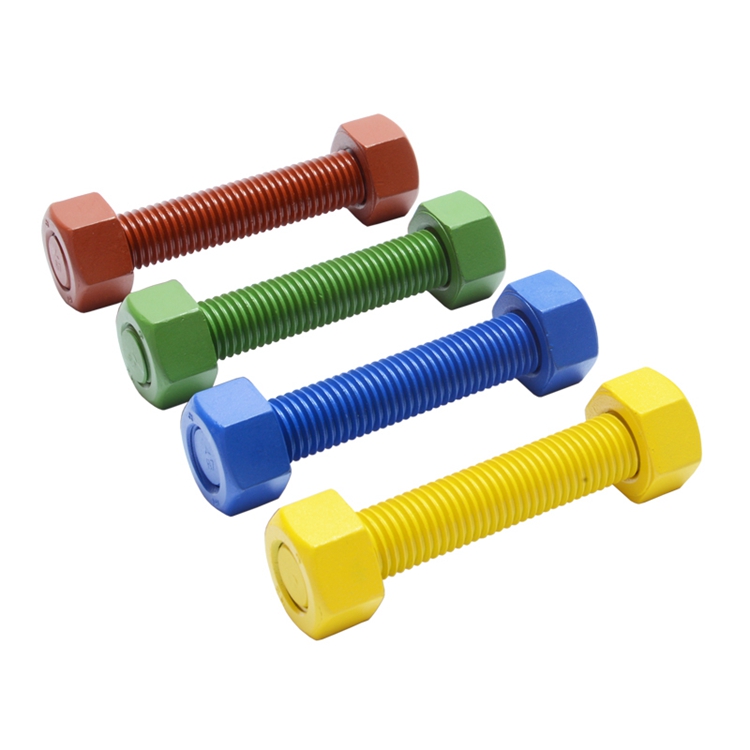stud bolt b7 and l7 manufacturers
Dùbh . 16, 2024 19:14 Back to list
stud bolt b7 and l7 manufacturers
Understanding the Differences Between Stud Bolt B7 and L7 Manufacturers
When it comes to industrial fasteners, stud bolts are crucial components that ensure the structural integrity of various applications. Among the myriad types of stud bolts available in the market, B7 and L7 are two commonly specified grades that meet high-performance requirements in demanding environments. Understanding their characteristics, specifications, and the manufacturers that produce them is essential for engineers and procurement professionals alike.
Overview of B7 and L7 Stud Bolts
B7 Stud Bolts
B7 is a high-strength alloy steel stud bolt typically made from A193 B7 material. It is designed to withstand elevated temperatures and high stress, making it ideal for applications in the oil and gas industry, power generation, and heavy machinery. B7 stud bolts are often used in conjunction with heavy-duty flanges or pressure vessels where reliability is paramount.
Specifications for B7 stud bolts include
- Material Alloy steel - Ultimate Tensile Strength 125,000 psi (min) - Yield Strength 105,000 psi (min) - Temperature Resistance Can perform well at temperatures up to 600°F (316°C)
The production process for B7 stud bolts typically involves heat treatment, which further enhances their mechanical properties
. This heat-treated steel exhibits excellent durability and resistance to corrosion, especially when coated with appropriate materials.L7 Stud Bolts
L7 stud bolts, on the other hand, are crafted from low-alloy steel and are rated for applications that require strength but not the extreme performance levels of B7. The materials used for L7 can often be found in specifications including A193 L7 and A320 L7, designed for use in environments where low-temperature performance is critical.
Specifications for L7 stud bolts include
stud bolt b7 and l7 manufacturers

- Material Low-alloy steel - Ultimate Tensile Strength 70,000 psi (min) - Yield Strength 70,000 psi (min) - Temperature Resistance Suitable for cryogenic applications and capable of performing down to -50°F (-45°C)
The manufacturing process of L7 stud bolts also emphasizes heat treatment, ensuring they can withstand harsh working conditions and provide a secure fastening solution for equipment that may undergo temperature fluctuations.
Choosing the Right Manufacturer
When selecting manufacturers for B7 and L7 stud bolts, it's critical to consider several factors that contribute to the overall quality and performance of the fasteners
1. Certifications and Standards Reliable manufacturers should comply with industry standards, such as ASTM (American Society for Testing and Materials) and ASME (American Society of Mechanical Engineers). Certification to ISO standards can also indicate a commitment to quality.
2. Material Sourcing Quality begins with raw materials. Manufacturers should source high-grade materials from reputable mills to ensure consistent performance. The traceability of materials is also an essential factor for compliance and safety.
3. Manufacturing Processes Advanced manufacturing techniques, including CNC machining, precise forging, and stringent quality control protocols, can significantly impact reliability and performance. Manufacturers that invest in modern technology often produce better-quality fasteners.
4. Testing and Inspection Thorough testing using methods like tensile testing, hardness testing, and X-ray or ultrasonic inspection is key to ensuring that the stud bolts meet the required specifications and can withstand their intended applications.
5. Customer Support and Expertise A manufacturer’s ability to provide expert advice and support during the selection process can be invaluable. They should offer detailed technical specifications and documentation to help in selecting the appropriate stud bolts for specific applications.
Conclusion
Understanding the differences between B7 and L7 stud bolts and the capabilities of their respective manufacturers is vital for ensuring the success of industrial applications. By focusing on quality, compliance, and sourcing from reputable manufacturers, engineers can select the appropriate fasteners that meet the demands of their unique projects. Whether opting for B7 or L7 stud bolts, it is crucial to partner with manufacturers that prioritize excellence and reliability in their production processes. Careful consideration will ensure that the chosen fasteners perform reliably in the toughest conditions, safeguarding both the infrastructure and personnel involved in these operations.
Latest news
-
Top Metric Wood Screw Companies | Durable & Reliable
NewsAug.01,2025
-
Premium Lawn Mower Handle Bolts Supplier | Fast Delivery
NewsJul.31,2025
-
Premium Silver Screws Supplier | High-Conductivity Fasteners
NewsJul.31,2025
-
Silver Screws Supplier: High-Quality Fasteners for Various Industries
NewsJul.30,2025
-
Top Spike Wheel Nuts Supplier - High Quality & Custom Options Available
NewsJul.29,2025
-
Top Wire Bolts Suppliers & Manufacturers – Quality Fasteners Factory
NewsJul.29,2025
